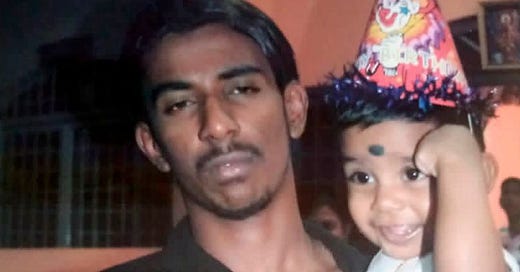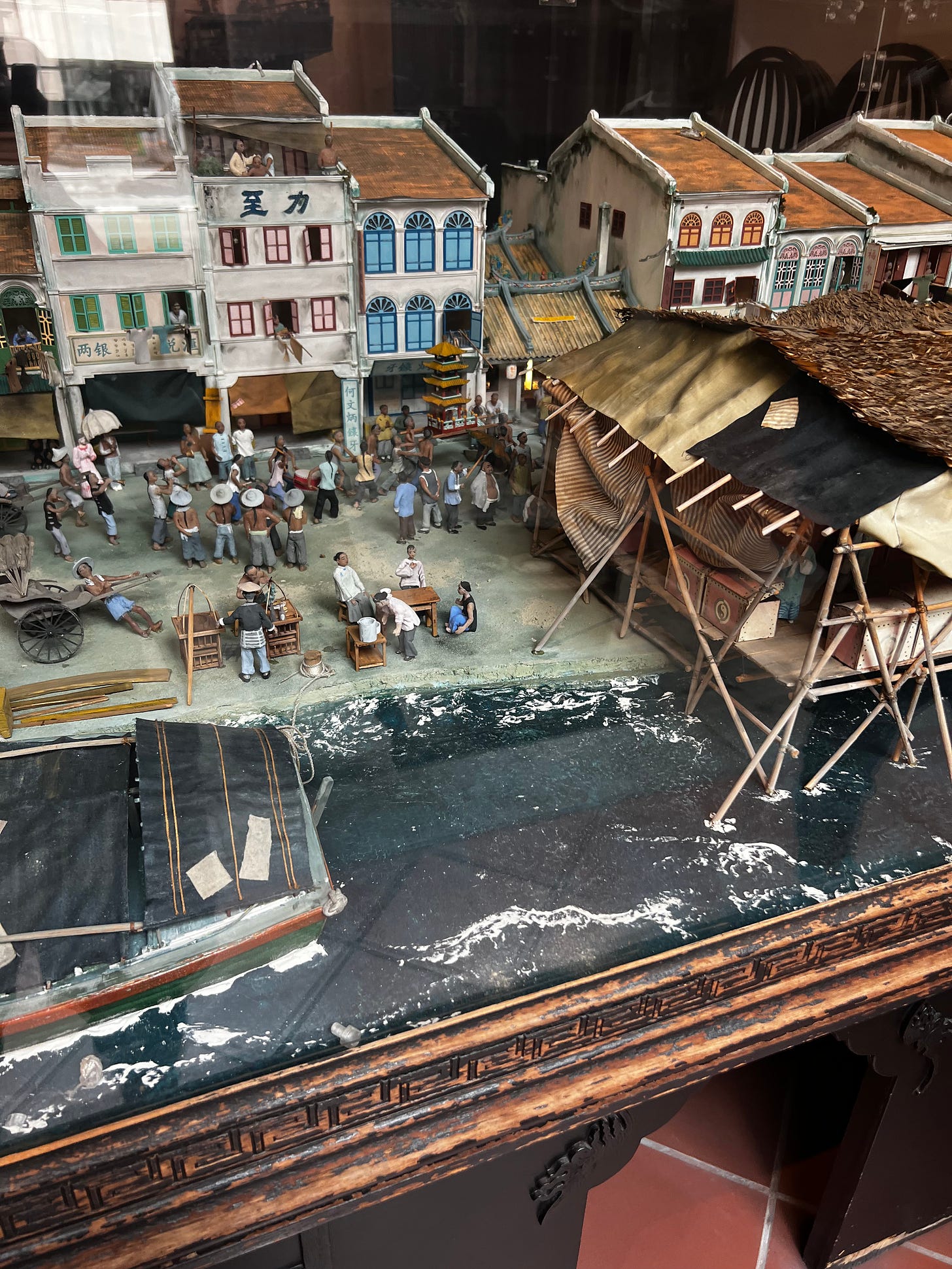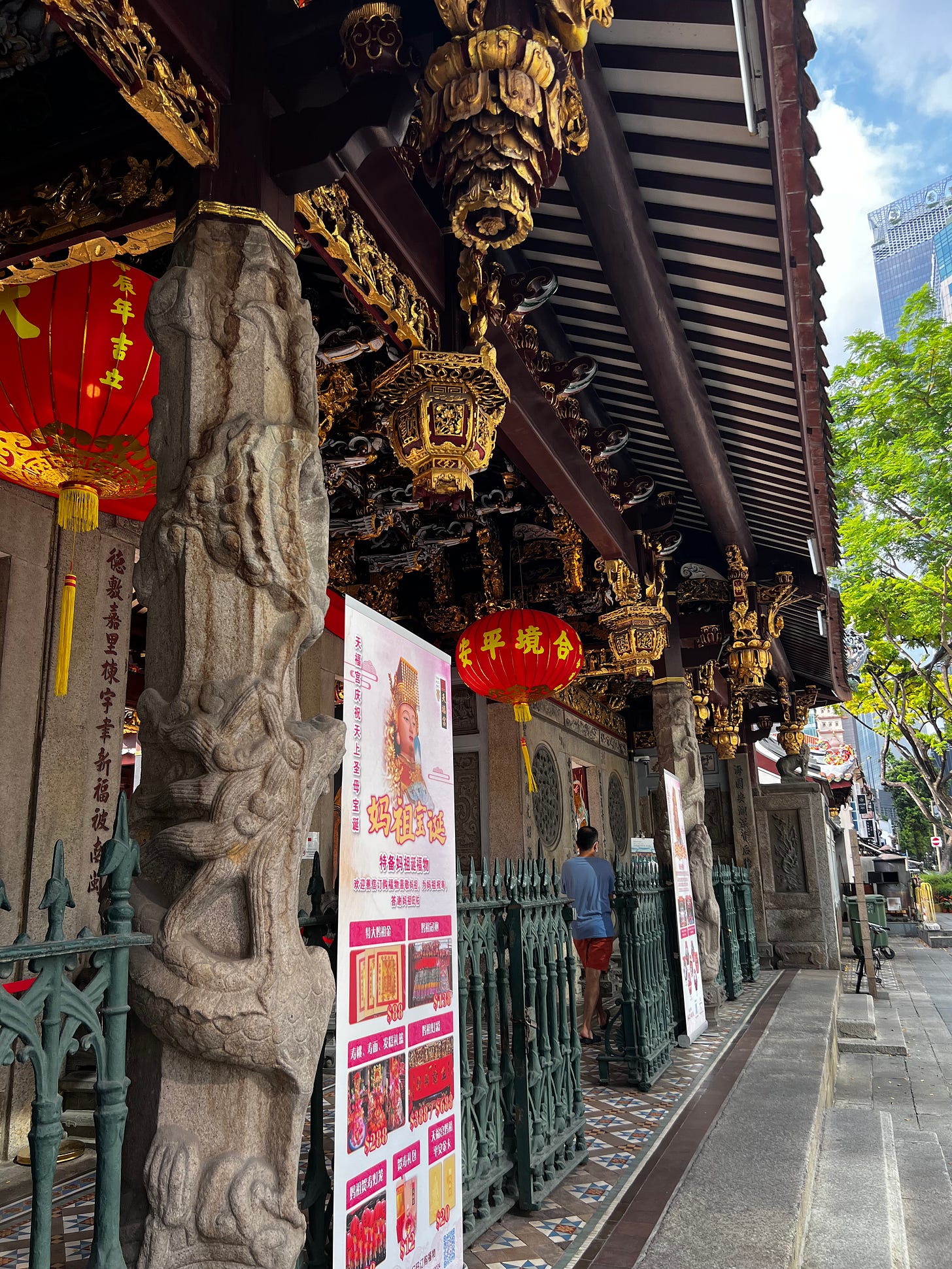drug (ab)use, churches, and secret societies
drug policy, punishment, and rehabilitation in singapore
In 2016, K Shanmugan, the current minister of Home Affairs and Law in Singapore, participated in a Q&A with Nanjing Technical Uni students concerning, among other issues, drug policy, and criminal justice. Here’s an excerpt:
Ms Saevaal Meenakshi, 23, fourth-year student in chemical and biomedical engineering: My question is about the death penalty. In Singapore we’ve already eased it a lot for the drug traffickers and murderers. Is there any chance in the future that we will abolish the death penalty entirely?
Mr K Shanmugam: There is no right and wrong answer to this — it’s really a question of choice. So, let me put the choices to you: When we talk about death penalty for drug traffickers, what are we talking about? The person brings across heroin enough to feed 950 people for one week, that person faces death penalty. People look at the drug traffickers that we impose a death penalty on. Very little of the literature focuses on the death penalties that drug traffickers impose on society…
Then ask yourself, if you can believe that because you have the death penalty, the number of deaths actually goes down. For example, we used to arrest about 7,000 people a year, in the mid-2000s if I’m not wrong. We then tightened up our enforcement and laws considerably. It’s come down to 2,000.
I visit the prisons, I visit the families, as I said, father is in prison, mother is 20-something, two children — three years old, two years old — second husband is also a drug addict, what future do you think those children have?
So where are your sympathies, are they being misplaced? How many more of such families do you want? As I said we used to arrest 7,000, now it’s down to 2,000. Our law enforcement has remained the same, that means 5,000 lives have been saved every year, over a period of 10 years. Do you weigh that as being important, or would you want to spare the life of a drug trafficker who wants to destroy our lives? There’s no right and wrong — you choose.
Singapore is one of a few countries with a mandatory death penalty sentence for drug trafficking, whose distinction with drug possession/abuse is numerically defined (meaning, possessing _____ g of cannabis is defined as trafficking instead of possession). Every flight inbound to Changi airport is sure to announce this fact to foreigners, as even surrounding SE Asia countries do not carry the same policies.
As it is one of a few, I think it’s worth understanding how the government justifies its policy. Last year, Richard Branson — billionaire from the UK and anti-War-on-Drugs advocate — posted blogs decrying the policy, yielding responses from the Ministry of Home Affairs. The publicized confrontation centered initially around the hanging of Nagaenthran Dharmalingam, which created controversy over his capacity for agency due to intellectual disability:
Nagaenthran’s family said he had an IQ of 69, but the city state’s courts found he knew what he was doing at the time of the offence and that no additional evidence had been presented to show any decline in his intellectual abilities. — Aljazeera
Branson published a strong critique of the decision, which set off a back and forth between himself and the government that illuminates the government’s rationale.
This rationale is not so unfamiliar to those who followed America’s war on drugs. From the government’s first response letter (summarized very brutalistically):
drugs kill
drugs cost money for society
look at how drugs are killing people in the US (which does not have this mandatory death sentence)
drug inflow was reduced after the mandatory death penalty was institutionalized for traffickers
most notably, a moral argument about positionality that feels unusually editorial for what seems to be an evidence-based response — at least in my impression:
Mr Branson is entitled to his opinions. These opinions may be widely held in the UK, but we do not accept that Mr Branson or others in the West are entitled to impose their values on other societies. Nor do we believe that a country that prosecuted two wars in China in the 19th century to force the Chinese to accept opium imports has any moral right to lecture Asians on drugs.
From the government’s final response letter:
an argument about deterrence: “In the four-year period after the introduction of the mandatory death penalty for trafficking more than 500 grammes of cannabis, there was a 15 to 19 percentage point reduction in the probability that traffickers would choose to traffic above the capital sentence threshold.”
Branson’s arguments are also familiar, arguments about marginalization and the risk of a mistake. If you’re interested, here’s one blog and another. One part of the first blog I linked makes the argument I want to focus on:
All eleven men executed in Singapore this year were small-scale traffickers, often of Malay origin or Malaysian nationals. Leaving aside the plausible suspicion of racial bias against a population that is disproportionately represented on Singapore’s death row, all of those executed in recent memory were on the low end of the drug supply chain, small-scale drug traffickers who were victims of the drug trade themselves, threatened, coerced, and bullied by large-scale dealers who prey on their economic vulnerabilities.
Branson is speaking to something much more fundamental than drug policy. The argument between himself and the government boils down to a disagreement over what is “preventative” — the goal of substantive drug policy. Does punishment deter, or is the problem one or two degrees more fundamental than what can be affected by policy?
I’m speaking to social capital here. To talk more abstractly than Branson does here about low-level traffickers: does someone whose community greenlights drug use deserve blame for participating in what everyone around them is also doing? Singaporean society is stereotypically conformist — an advantage for a government who wants to enforce policy. Without commenting on the fairness of that characterization, conformity culture depends on those around you. When you find yourself part of a group that does not follow the law, does resolving the subsequent cognitive dissonance become your individual responsibility?
The government recognizes the importance of social capital in these conversations and demarcates “building social capital” as a governmental aim in empowering ex-offenders to reintegrate without recidivism. Finding a supportive community implicitly involves signing a social contract that frowns on behaviors like drug use (or the opposite — more on that in a bit). Search on Google about social capital as it relates to recidivism and you’ll find treasure troves of scientific evidence.
In a dearth of community engagement for disaffected populations like ex-cons, institutions rush to fill in the corresponding power vacuum. I’ll talk about two: churches, and gangs/secret societies.
Churches
Sometimes, secondary school students in Singapore involved in religion will volunteer at organizations like Helping Hand which hope to re-integrate ex-offenders through faith (among other practices). The logic is simple — church creates new community for ex-offenders who might otherwise “relapse” to their old ways. From their website:
Our vision is to transform ex-offenders to live Christ-centered lives by creating a safe and empowering place where they can grow in their faith, rebuild their lives, and develop the skills and knowledge they need to live full and meaningful lives.
Organizations like these do some work with the government (unlike in the US where such collaboration would likely create more consternation about separation of church and state). Here’s a profile from the Straits Times about one particular advocate:
For the last 18 years, Vincent has stayed focused and drug-free, thanks to the support of his church leaders and friends, mentors and his family - wife Jessica, their 28-year-old daughter and two sons, now aged 22 and 25. . . Vincent is now a liaison and training manager with The Helping Hand, a Christian halfway house, and a bible teacher. He also preaches to offenders at the DRC and is an advocate with the CNB.
It was through The Helping Hand that the CNB (Central Narcotics Bureau) contacted him and asked if he would like to work with them by conducting anti-drug talks and sharing sessions for students, youth, working adults and parents.
Secret societies and gangs
I took a tour recently of Chinatown led by an ex-gang/secret society member. He had been criminalized for several years for drug possession, lucky to avoid death. Released one year early, he showed us his ankle monitor that the government still uses to enforce his curfew. As he showed us this all I could think about was the monitor as a badge of shame that he could only cover by wearing long pants in the oppressive Singaporean heat and humidity (he was wearing long pants on an especially hot day).
During the tour, we talked about his experience on society recruitment, drug abuse, and the underbelly of Singaporean history. The tour was organized by a different re-integration organization, employing ex-offenders to talk about their life experiences during the tour. The org also provides mentors to ex-offenders, and the tour guide facilitator mentioned that any of us could become a mentor (I would feel utterly unqualified but I didn’t mention this out loud)
Essentially, secret societies in Singapore formed as “coolies” (economically desperate immigrants who left China for elsewhere) came to Chinatown Singapore in the 1800’s. These societies (and offshoot gangs) helped these folks find employment, welfare, resource, and community. They also facilitated the distribution of opium and other drugs, as well as bouts of violence.
Our tour guide took us to two separate temples (one of them being the renowned Thian Hock Keng temple) to show us where secret societies would recruit their members. Left unmentioned was the implication: there has been / might still be a turf war between religion and societies/gangs to fill the “community engagement power vacuum.” These communities are ostensibly aligned in purpose (create community) but oppositional in process (bible study vs drug use, etc.).
In this sense, the tour very much focused on social capital but did not engage with the reality that social capital’s impact on crime creates tension with a punishment-based system. That is, assumed in the influence of social capital is the belief that there are myriad factors out of your control that affect your propensity for crime, so to what extent are you to be individually punished for your “choice” of community?
identity politics
The tour felt much more expensive than what it was “worth,” and in fact it seemed to me by its conclusion that the experience I was actually paying for was hearing my guide talk about his life. Which, of course, is only fathomable to an audience that would otherwise never talk to someone like my tour guide.
Paying for the tour reaffirmed my distance from an invisible community, which I perceived as soon as the facilitator invited us to become mentors for ex-cons like himself.
Is Singapore so safe that people who’ve committed crime and flirted with death can commercialize their experience?
The government talks about its drug policy in terms of the death drugs inflict on society instead of the death society inflicts on those trafficking drugs.
And in fairness, they have collaborated with churches and attempted to regulate secret societies and gangs, to assist the “righteous” organizations that fill in the vacuum.
Is the opposition to killing in criminal justice simply a Western overreach of moral disgust or a common-ground conversation that we all ought to have about universal freedoms, rights, and ultimately, forgiveness?






